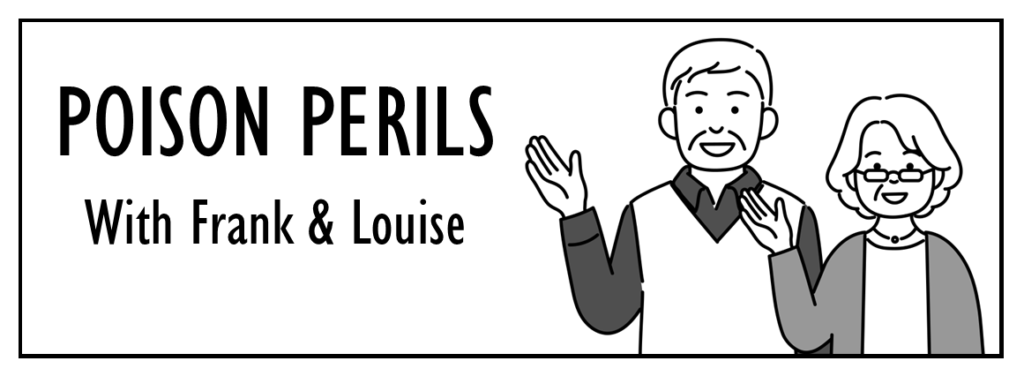
|
Meet Frank and Louise Wilmot Frank, 75, is a retired engineer who enjoys gardening, fishing, and shouting at the television. Louise, 68, is a retired middle school teacher who likes to travel, read, and ignore Frank’s shouting at the television. They share their New England home with a happy little wheaten terrier named Bailey. |
It was Saturday morning in the Wilmot house and Frank and Louise were enjoying their coffee on the back patio. Louise was flipping through photos of weed-free flower beds in a garden magazine as Frank scrutinized the rose bushes surrounding the patio.
“Do you remember the roses my father used to grow? The size of dinner plates, and not a beetle to be found. Look at these leaves—they’ve turned them to shreds!” he lamented.
Frank had made a hobby of plucking Japanese beetles off his roses for the last few weeks, but the beetles had called in reinforcements, so he headed off to the shed to take the battle to the next level. The shed was dark, and cluttered with half-empty spray bottles of “nontoxic” and “organic” pest control products that Louise had insisted on buying.
“Lord knows, we wouldn’t want to use something toxic on bugs we are trying to kill, on plants we’re not going to eat,” Frank muttered, before spying what he was after. “Aha—just the ticket!”
Louise looked up from her magazine to see Frank approaching the patio, donning rubber gloves.
“Performing surgery on the roses, Dr. Wilmot?” she quipped.
“Nope, just donning my armor for battle against the damn beetles. Can’t be too careful with this stuff!”
“I thought you only spread that chemical on the lawn to kill the beetles,” Louise asked.
“Well, I must not have gotten the buggers in their larva stage,” he replied, “and the label says it will work on them once they’re at the chomping stage, too.”
Frank began carefully spraying the rose bushes, but a sudden gust kicked the spray back onto his exposed forearm.
“Maybe you ought to put on long sleeves, there’s a bit of a breeze today. Don’t get that stuff all over you, Frank!”
“Thank you, Captain Obvious, I’ll try not to. I’m almost done here.”
Finished, he closed the container and returned it to the shed, wiping off his forearm and a bit on his shin as well before removing his gloves and disposing of them in the garage trash.
“You’d better wash up—use the dish soap, that stuff works on everything,” said Louise. “And don’t use my good towels to dry off! Good lord, you’ve got it on your shorts as well! Stand there, I’ll get you a bag to put your clothes in, you can strip down here on the patio.”
“Well, that ought to entertain the neighbors.”
Frank emerged well scrubbed from the bathroom, wrapped only in the towel usually reserved for the dog. His forearm and the patch on his shin looked particularly pink and he touched one area gingerly. Louise noticed, too.
“What have you got going on there? Is that from washing up or are you having a reaction to something? Does it hurt? Itch?”
“Now don’t panic, it’s just a little irritated,” Frank replied. “I think I got everything cleaned off but…”
“I’ve got some first aid cream, but I don’t know if that would help,” Louise said. “I’m going to toss your clothes in the trash.”
“Oh no you don’t, Louise, that’s my good tie-dyed shirt and my favorite cargo shorts!”
“All right, all right, let’s call the poison center and see if they can help us with your skin and my laundry.”
A quick call to the Northern New England Poison Center reassured them that Frank was likely having a mild dermal reaction to the pesticide, and that his symptoms would likely go away on their own in the next few hours. The poison specialist suggested long sleeves/long pants when using the product in the future. He also advised Louise that washing the shirt and shorts alone with hot water, regular detergent and an extra rinse should be enough to decontaminate them.
The Northern New England Poison Center is available 24/7 at 1-800-222-1222 to provide free, confidential expertise regarding mishaps with pesticides, medication errors and other types of potential poisoning.




